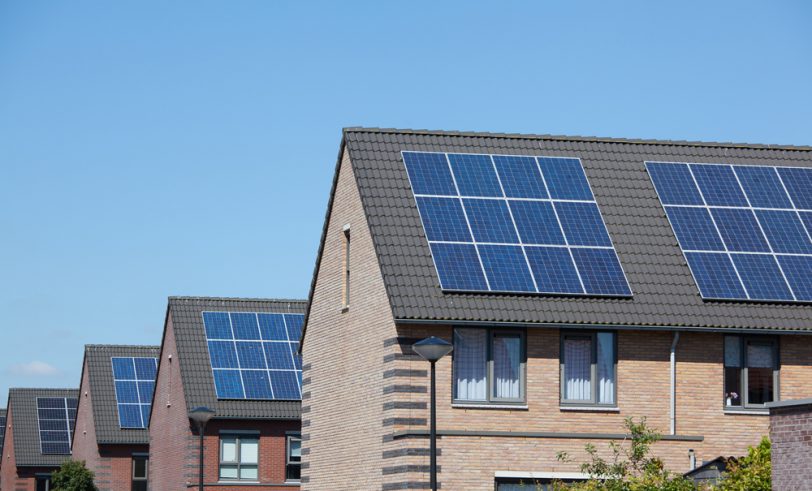A policy meant to encourage more rooftop solar power generation could be costing all ratepayers and subsidizing the affluent.
The policy—net metering—allows consumers to offset their electric bill with electricity generated from rooftop solar panels. When the solar panels produce more electricity than the home is using, excess electricity is put back onto the grid. The meter “spins” backward, deducting the electricity generated from the resident’s bill. Homeowners pay only for the net amount their meter records, hence the name “net metering.”
Under Missouri law, net metering customers are paid at the retail electricity rate for the power they generate. However, retail electricity prices include more than just generation. Transmission and distribution costs, among other items, are included in a ratepayer’s retail electricity price. In Missouri, only about a third of the retail price is from electricity generation costs.
When net metering customers are paid retail rates, they receive payments not just for the electricity they produce but also the parts of retail rates that are used to maintain the electric grid, which they neither provide nor maintain. But the costs of providing and maintaining transmission and distribution infrastructure don’t disappear—utilities pass on the costs of net metering programs to other customers through higher rates.
The costs passed on to other customers can be quite high. According to research by the Brookings Institute, if a net metering customer zeroes out their monthly bill entirely, they shift $45 to $70 onto regular customers. Before reforms were enacted in 2016, net metering customers in Arizona shifted over $9 million in annual costs onto regular customers. Net metering customers in Nevada received a roughly $500 annual subsidy from regular customers; reforms in 2017 lowered that dollar amount, but only slightly.
Moreover, this cost shift has regressive effects. A survey by the Lawrence Berkeley National Laboratory found that solar panel owners have incomes 50 percent higher than the median income of households that don’t own solar panels. Asking lower-income earners to subsidize wealthier solar panel owners is hardly an ideal policy.
So what can be done about this problem? One solution is to compensate net metering customers at wholesale, not retail, prices. Net metering customers would be paid the costs the utility saves by not generating this electricity, which would not include the many other costs—transmission, distribution, administration, etc.—that the retail rate includes. This approach better reflects the value of the electricity produced and doesn’t lead to such drastic cost shifting. Alternatively, an additional monthly fee could be charged to net metering customers to offset retail price overcompensation, as Kansas has done.
Rooftop solar power has room for growth in Missouri, but current net metering laws unfairly reward those with solar panels and punish those without. Missouri should consider altering the net metering policy to make it fairer for all ratepayers.


